
The Enchanting Wilderness of Ybyturuzu
Nestled in the heart of Paraguay, Ybyturuzu is a hidden gem that offers a perfect blend of natural beauty and tranquility. This region is famous for its stunning mountain ranges, lush forests, and crystal-clear streams, making it a paradise for nature lovers and adventure seekers alike. Whether you're an avid hiker, a bird-watching enthusiast, or simply looking for a peaceful retreat, Ybyturuzu has something to offer. The Ybyturuzu mountain range is the highest in Paraguay, providing breathtaking panoramic views and challenging trails for hikers of all levels. The region is also home to a diverse array of flora and fauna, including several endemic species, making it an ideal spot for eco-tourism. The dense forests are alive with the sounds of exotic birds, and you may even spot a jaguar or a tapir if you're lucky. In addition to its natural attractions, Ybyturuzu is rich in cultural heritage. The local communities are known for their warm hospitality and traditional crafts. You can visit small villages to experience the local way of life, sample delicious Paraguayan cuisine, and purchase handmade crafts. The region's history is also reflected in its ancient ruins and colonial-era architecture, offering a glimpse into Paraguay's past.
Local tips in Ybyturuzu
- Visit during the dry season (May to September) for the best hiking conditions and clearer skies.
- Pack insect repellent and sunscreen to protect yourself from bugs and harsh sunlight.
- Hire a local guide for a more informative and safe trekking experience.
- Try the local dish 'Sopa Paraguaya' at one of the village eateries for an authentic taste of Paraguayan cuisine.
- Bring cash as card payments are not widely accepted in remote areas.
The Enchanting Wilderness of Ybyturuzu
Nestled in the heart of Paraguay, Ybyturuzu is a hidden gem that offers a perfect blend of natural beauty and tranquility. This region is famous for its stunning mountain ranges, lush forests, and crystal-clear streams, making it a paradise for nature lovers and adventure seekers alike. Whether you're an avid hiker, a bird-watching enthusiast, or simply looking for a peaceful retreat, Ybyturuzu has something to offer. The Ybyturuzu mountain range is the highest in Paraguay, providing breathtaking panoramic views and challenging trails for hikers of all levels. The region is also home to a diverse array of flora and fauna, including several endemic species, making it an ideal spot for eco-tourism. The dense forests are alive with the sounds of exotic birds, and you may even spot a jaguar or a tapir if you're lucky. In addition to its natural attractions, Ybyturuzu is rich in cultural heritage. The local communities are known for their warm hospitality and traditional crafts. You can visit small villages to experience the local way of life, sample delicious Paraguayan cuisine, and purchase handmade crafts. The region's history is also reflected in its ancient ruins and colonial-era architecture, offering a glimpse into Paraguay's past.
When is the best time to go to Ybyturuzu?
Unmissable attractions to see
Monday Falls
Experience the breathtaking beauty of Monday Falls, a stunning tourist attraction and national park in Presidente Franco, Paraguay, perfect for nature lovers and adventure seekers.
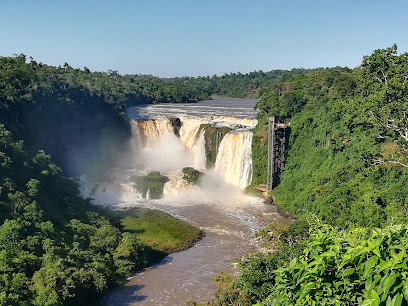
Manuel Ortiz Guerrero Park
Experience the serene beauty of Manuel Ortiz Guerrero Park in Villarrica, a perfect retreat for relaxation and enjoying nature's wonders.
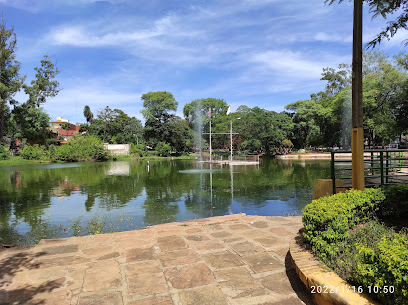
Cerro Tres Kandú
Explore the breathtaking landscapes of Cerro Tres Kandú, Paraguay's highest peak, and immerse yourself in the beauty of nature's wonders.
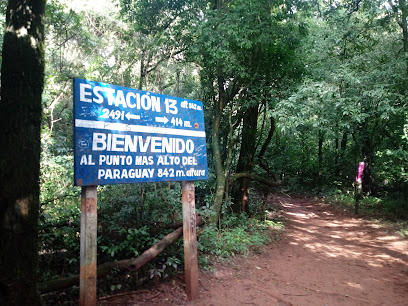
Camping Tacuara
Experience the perfect blend of relaxation and adventure at Camping Tacuara in Melgarejo, Paraguay, featuring a swimming pool, dining, and natural beauty.
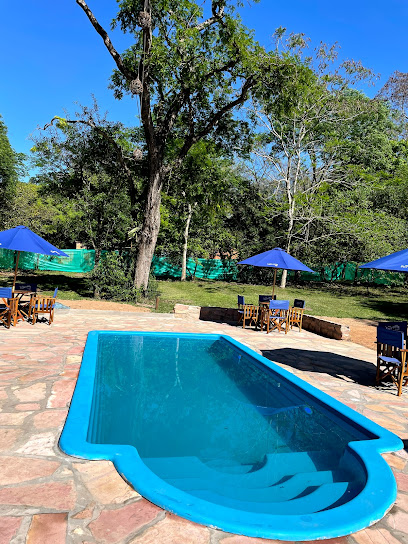
Parque Aventura Monday
Experience adventure and nature at Parque Aventura Monday, the ultimate ecological park in Presidente Franco, Paraguay, perfect for families and thrill-seekers.
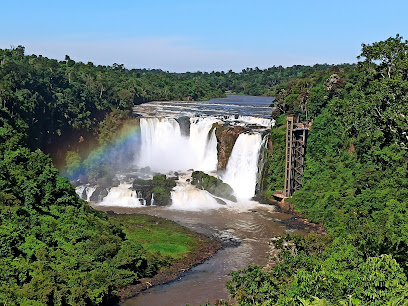
Granja Francisca, San Gervacio Cerro Cora San Pablo Akati Ybytyruzu
Explore Granja Francisca in San Gervacio Cerro Cora, where nature, adventure, and local culture come together for a memorable experience.
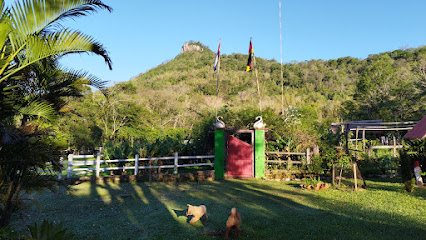
Desvio Al Cerro Tres Kandu
Explore the breathtaking beauty and rich biodiversity of Cerro Tres Kandu, a stunning natural landmark in Gral Eugenio Alejandrino Garay, Paraguay.
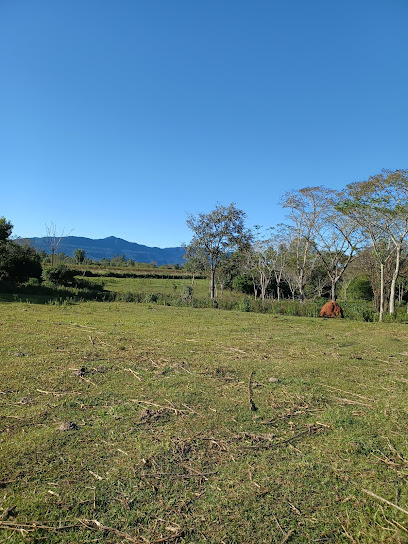
Cascada Pa'i
Experience the breathtaking beauty of Cascada Pa'i in Paraguay, a serene waterfall surrounded by lush nature, perfect for relaxation and exploration.
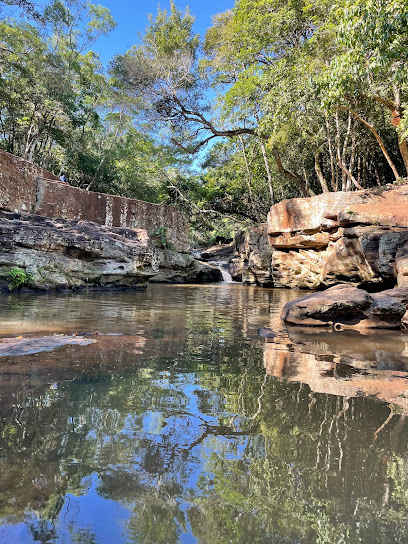
Salto Cantera
Experience the breathtaking beauty and adventure at Salto Cantera, a premier tourist attraction in Independencia, Paraguay, perfect for hiking and cycling.
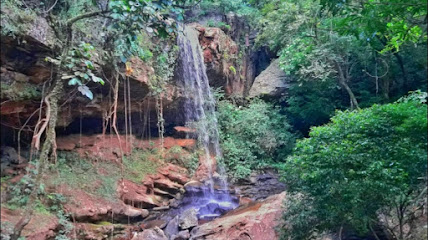
Cerro Punta Mirador
Discover the stunning vistas and serene beauty of Cerro Punta Mirador, a must-visit tourist attraction in Paraguay for nature lovers and photographers.
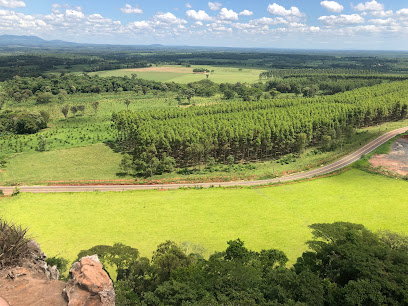
Salto Don Alberto
Explore the breathtaking beauty of Salto Don Alberto, a stunning waterfall in Cerro Cora, Paraguay, perfect for nature lovers and adventure seekers.
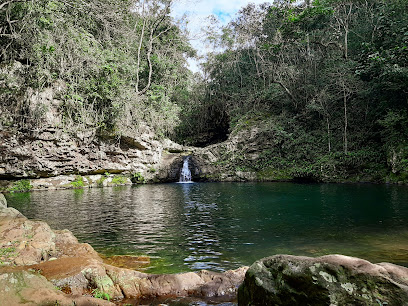
CENOTE DE TAVA'I
Experience the breathtaking beauty of Cenote de Tava'i, a natural wonder in Paraguay with crystal-clear waters and lush surroundings, perfect for relaxation and adventure.
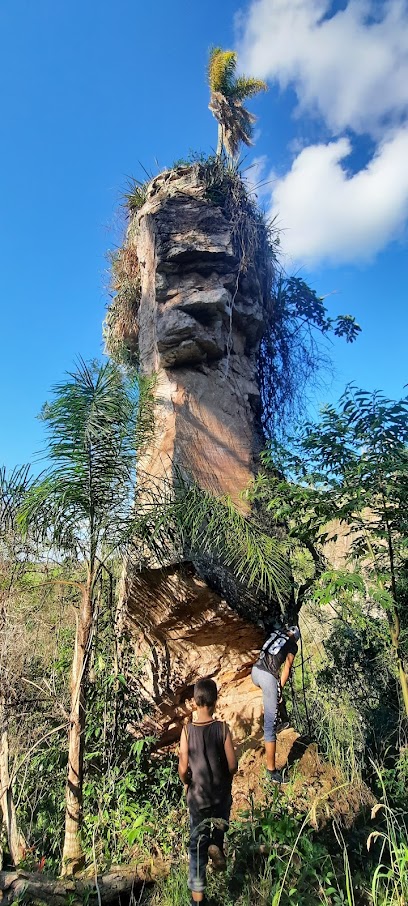
Camping Balneario Miriam Mabel
Explore the beauty of nature at Camping Balneario Miriam Mabel, your ideal getaway for relaxation and adventure in Independencia, Paraguay.
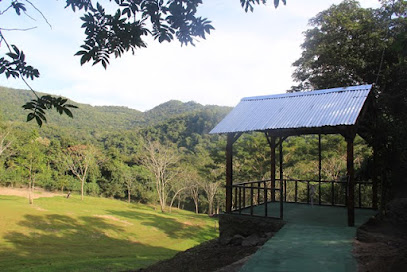
Parque Acuático Valle Delfina
Dive into adventure and relaxation at Parque Acuático Valle Delfina, a premier water park in Caaguazú, Paraguay, perfect for families and fun-seekers.

Salto San Vicente
Experience the serene beauty of Salto San Vicente, a stunning waterfall paradise in Paraguay, perfect for adventure and relaxation.
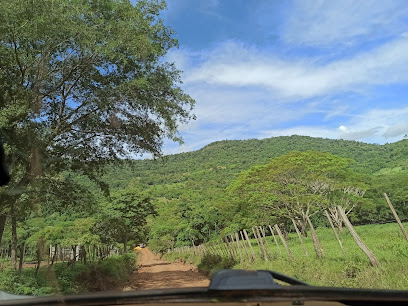
Essential places to dine
Bolsi
Experience authentic Paraguayan cuisine at Bolsi in Asunción - where family-friendly dining meets culinary excellence.
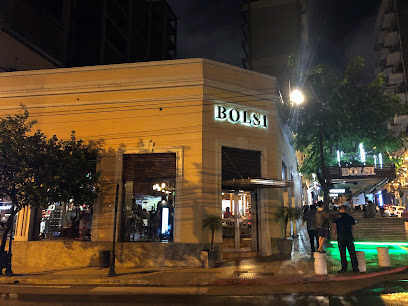
Churrasquería O Gaúcho
Experience authentic Paraguayan barbecue at Churrasquería O Gaúcho - where succulent meats meet vibrant culture.
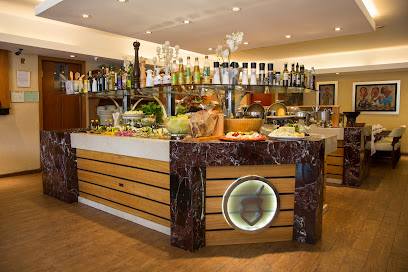
El Café de Acá
Experience authentic Paraguayan breakfasts at El Café de Acá, where local flavors meet warm hospitality in the heart of Asunción.
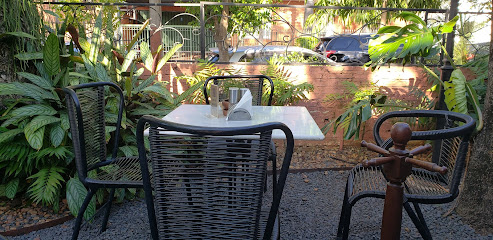
Maurice de Talleyrand
Experience culinary excellence at Maurice de Talleyrand, Asunción's premier destination for exquisite cuisine and sophisticated dining.
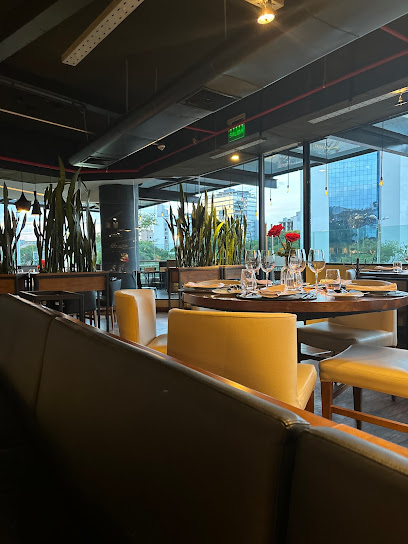
ALMA - Cocina con Fuegos
Experience the essence of Paraguayan cuisine at ALMA - Cocina con Fuegos, where tradition meets innovation in every delicious bite.
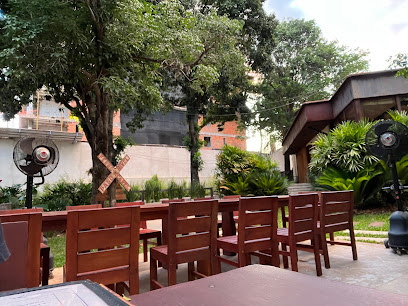
Tierra Colorada Gastro
Discover authentic Paraguayan cuisine at Tierra Colorada Gastro in Asunción – where tradition meets taste in every dish.
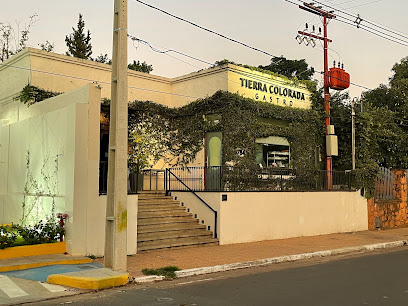
Eduvigis Restó-Bar
Experience authentic Paraguayan cuisine at Eduvigis Restó-Bar in Pirayú, where local flavors meet stunning landscapes.
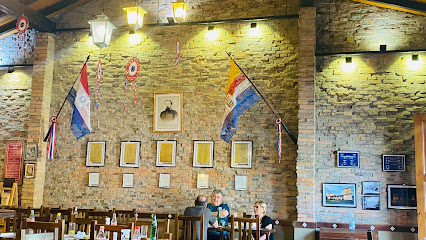
Zulu Rooftop
Discover Zulu Rooftop: A top-tier restaurant in Asunción offering stunning views and exquisite Paraguayan cuisine.
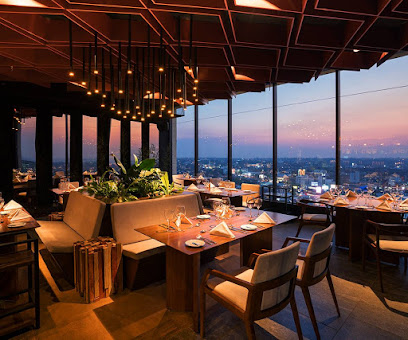
Parador Sandivel
Experience authentic Paraguayan cuisine at Parador Sandivel in San Miguel – where tradition meets flavor in a welcoming setting.
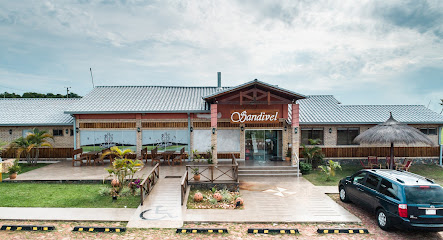
Camping Tacuara
Discover Camping Tacuara: A serene escape featuring delicious dining options, refreshing pools, and endless outdoor adventures in Melgarejo.
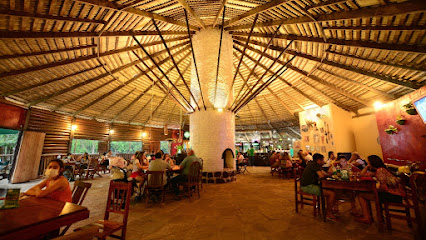
Takuare´e Brasas
Discover the rich flavors of Paraguay at Takuare'e Brasas - where expertly grilled meats meet warm hospitality in Asunción.
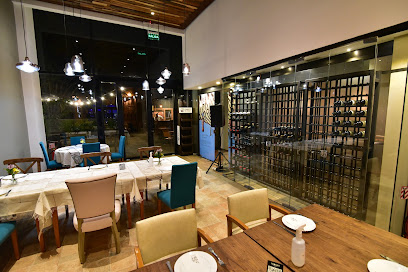
MBURICAO Restaurante
Experience exquisite French and Italian cuisine at Mburicao Restaurante in Asunción—where every dish tells a story.
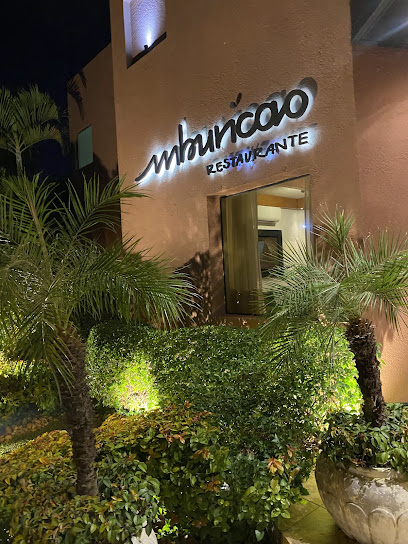
Takuare'e Restó
Experience authentic Paraguayan flavors at Takuare'e Restó in Asunción - where every dish tells a story.
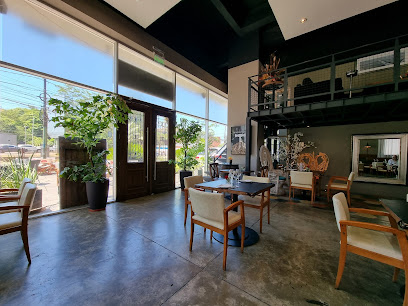
TUSS Restaurant & Fast Food
Experience the best of Paraguayan cuisine at TUSS Restaurant & Fast Food in Villarrica – where taste meets tradition!
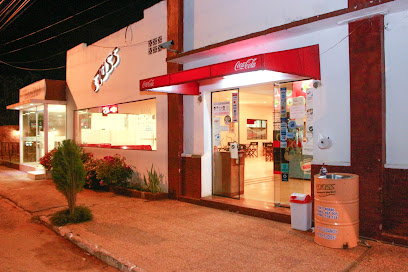
Koggi Korean Food Cart
Experience authentic Korean cuisine at Koggi Korean Food Cart in Asunción - A culinary gem serving delicious flavors under the stars.
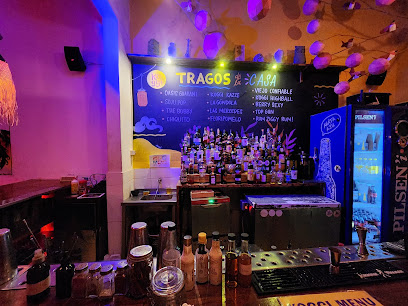
Markets, malls and hidden boutiques
Mini mercado Luisito
Discover the essence of Paraguay at Mini Mercado Luisito, your go-to store for local products and authentic culinary experiences.

Bella Donna Exclusividade
Explore Bella Donna Exclusividade in Tuparenda for unique Paraguayan gifts and artisanal treasures that reflect the heart and soul of local craftsmanship.
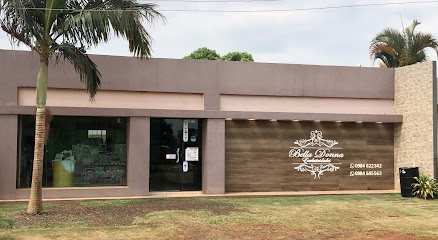
Despensa ÑA BLANCA PINTOS
Discover the vibrant culture and unique shopping experience at Despensa ÑA BLANCA PINTOS in Kapiitindy, Paraguay.
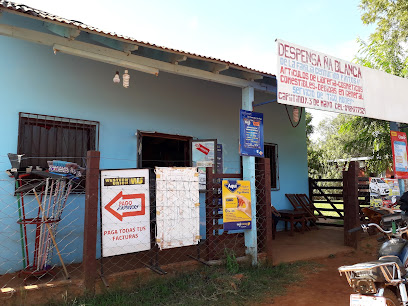
Comercial 3 Bocas
Explore the vibrant flavors of Paraguay at Comercial 3 Bocas, your go-to grocery store for local products and authentic culinary experiences.
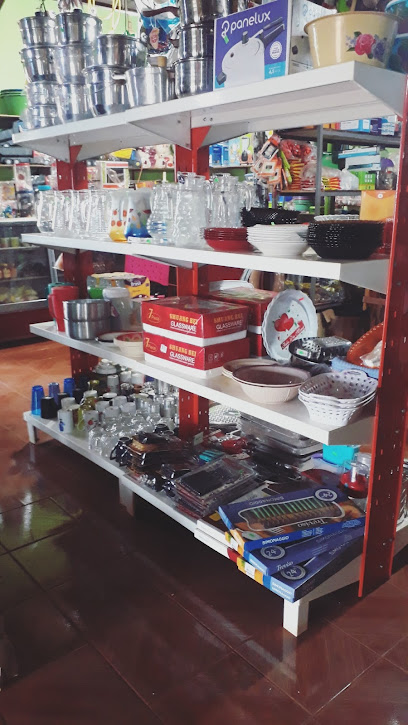
Despensa R y M
Discover the flavors of Paraguay at Despensa R y M, your essential grocery stop in Kapiitindy, offering fresh produce and local delicacies.

J&E Boutique
Discover unique fashion and quality attire at J&E Boutique, the premier clothing store in Abaí, Paraguay.

Almacén Delvalle
Explore Almacén Delvalle, a gem where authentic Paraguayan products and local culture come together in a delightful shopping experience.

Regalos Personalizados JULIA
Explore Regalos Personalizados JULIA in Tuna, Paraguay, for unique gifts and personalized treasures that capture local culture and charm.
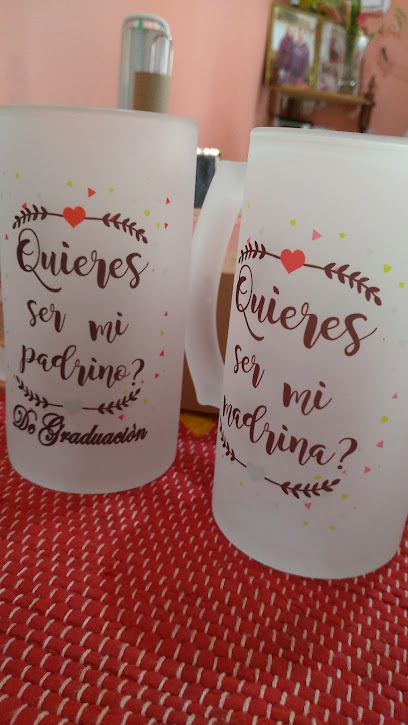
Florencia Novedades
Explore the unique offerings of Florencia Novedades, a general store in Abaí that showcases local crafts, delicacies, and unforgettable souvenirs.
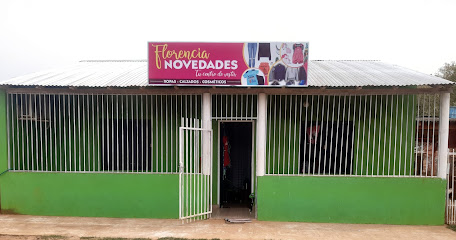
ARAH STORE
Explore Arah Store in Amambay for a diverse range of cosmetics and beauty products, perfect for every beauty enthusiast's needs.

Despensa D&R
Discover authentic Paraguayan craftsmanship at Despensa D&R, a home goods store brimming with unique treasures and local charm.

MYC NOVEDADES TU TIENDA
Explore the essence of Paraguay at MYC NOVEDADES TU TIENDA, your go-to boutique for unique crafts and local treasures in San Juan Nepomuceno.

LG Tienda
Explore LG Tienda in Abaí, Paraguay for unique gifts and authentic Paraguayan handicrafts that capture the spirit of the region.

Ng_detallitos
Discover unique handcrafted gifts and souvenirs at Ng_detallitos, where Paraguay's rich culture meets your travel memories.

Novedades A y M
Explore Novedades A y M in Taruma for unique local handicrafts and everyday essentials, blending culture and convenience in one charming store.

Essential bars & hidden hideouts
Lido Bar
Discover the heart of Paraguayan cuisine at Lido Bar, Asunción's beloved restaurant known for its authentic flavors and welcoming atmosphere.
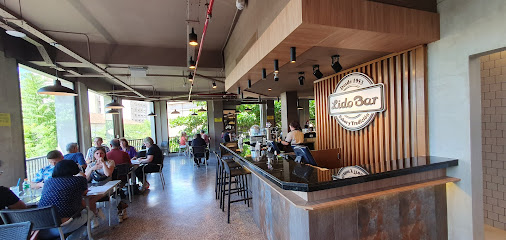
Britannia Pub
Experience the vibrant atmosphere of Britannia Pub in Asunción, where local flavors meet lively entertainment and unforgettable moments.
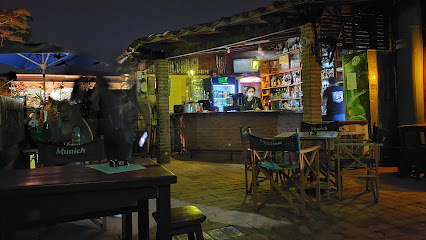
O'Leary club
Experience the vibrant nightlife of Asunción at O'Leary Club, a premier bar offering delicious drinks and an energetic atmosphere.
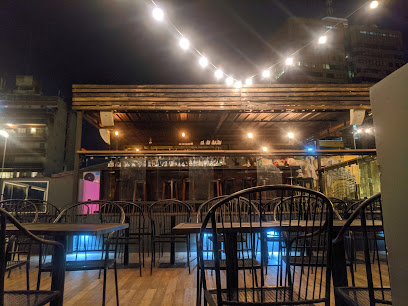
Morgan Warehouse, Nightclub
Experience the vibrant nightlife of Asunción at Morgan Warehouse, where exquisite cocktails and electrifying beats create unforgettable evenings.
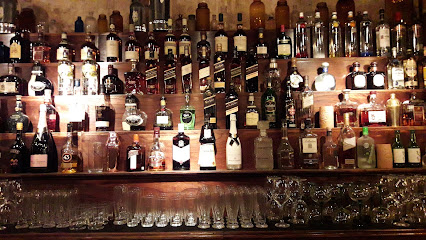
Chef Bar
Experience the vibrant nightlife of Villarrica at Chef Bar, where local flavors and friendly vibes come together for an unforgettable evening.
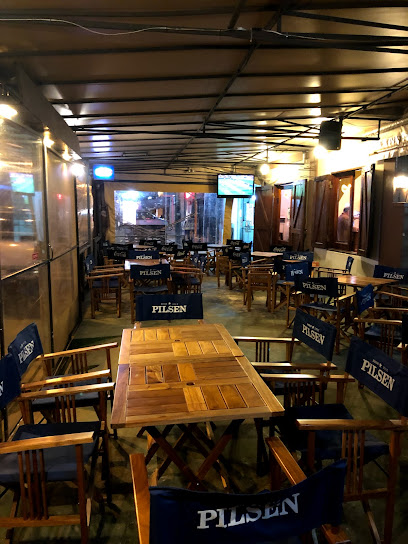
Lotus Bodega & Bar
Discover the vibrant flavors of Lotus Bodega & Bar in Caazapá, where delicious grill dishes, cocktails, and a lively atmosphere await.
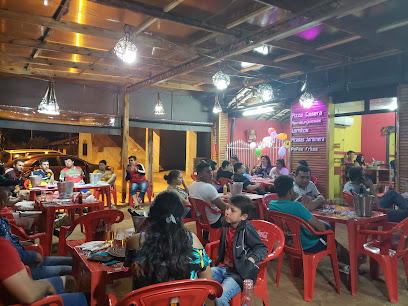
Anto Bar
Experience the vibrant culture and friendly atmosphere of Anto Bar in Villarrica, where locals and tourists come together over drinks and music.
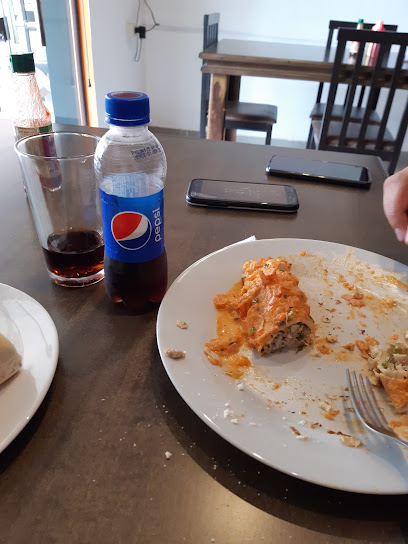
Gleu Pub
Experience the vibrant nightlife at Gleu Pub in Villarrica, where local culture meets lively entertainment in a welcoming atmosphere.
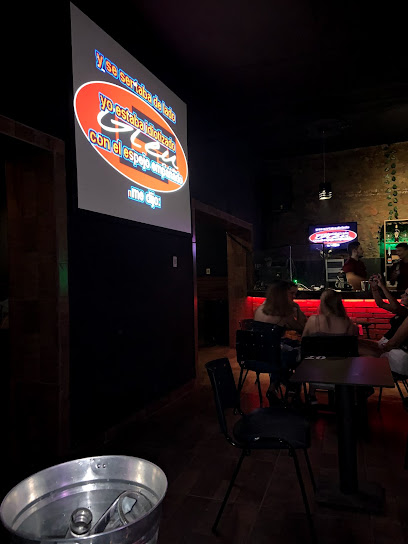
Mariscal Resto Bar
Discover the vibrant flavors of Paraguay at Mariscal Resto Bar, where grilled delights and a welcoming atmosphere await in Mariscal José Félix Estigarribia.
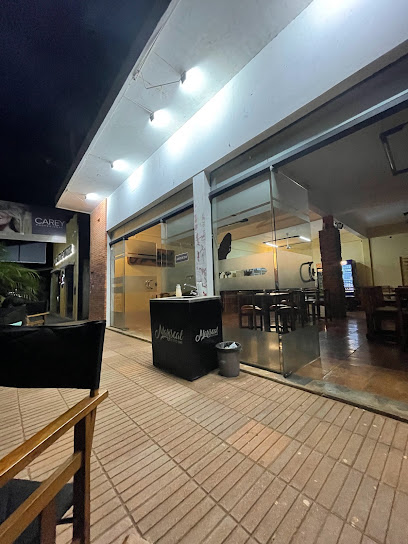
Pinky Floyd Bar
Experience the vibrant nightlife of Melgarejo at Pinky Floyd Bar, where delicious food meets lively entertainment and unforgettable moments.
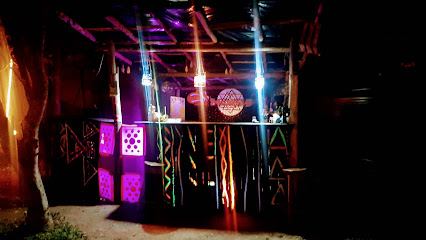
Bar pykirỹi
Experience the vibrant culture of Yataity at Bar Pykirỹi, where delightful drinks and a warm atmosphere await every visitor.
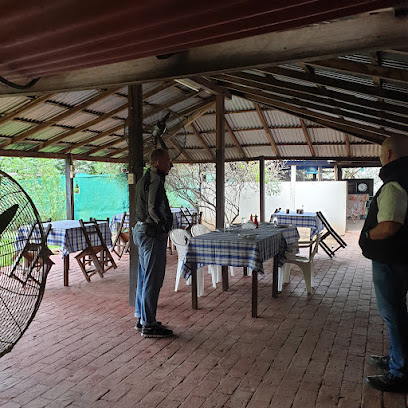
Parador Tacuara
Experience the vibrant atmosphere at Parador Tacuara, a must-visit bar in Tuna for delicious drinks and social vibes.
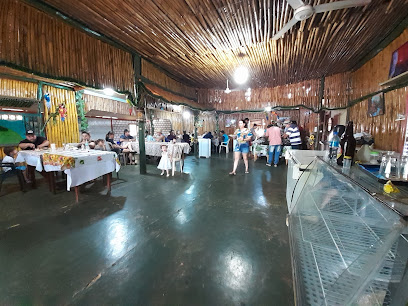
Bar Y Restaurant Punto De Encuentro
Experience the vibrant local culture at Bar Y Restaurant Punto De Encuentro, a lively bar in Plantacion offering affordable drinks and a welcoming atmosphere.
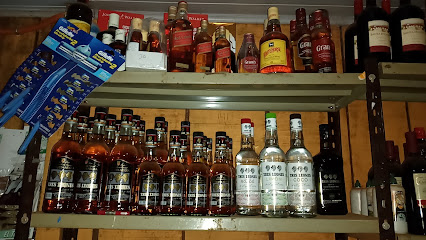
Bodega Tio Yiyo
Experience the vibrant local culture at Bodega Tio Yiyo, a must-visit bar in Tavaí, offering delightful drinks and a lively atmosphere.
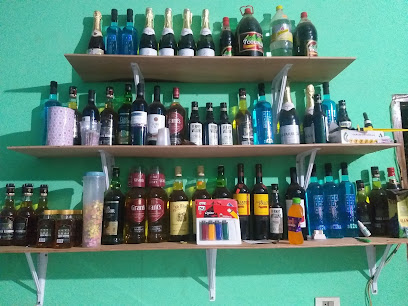
Takuarilla Resto-bar
Experience Kapiitindy's vibrant nightlife at Takuarilla Resto-bar, where delicious cuisine and refreshing drinks await.
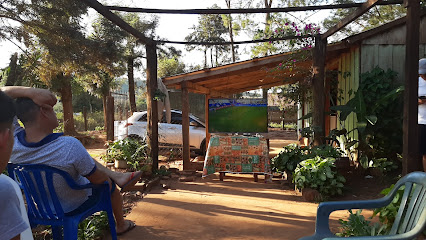
Local Phrases about Ybyturuzu
-
- HelloHola
[oh-la] - GoodbyeAdiós
[ah-dee-ohs] - YesSí
[see] - NoNo
[no] - Please/You're welcomePor favor/De nada
[por fah-vor/deh nah-dah] - Thank youGracias
[grah-see-ahs] - Excuse me/SorryDisculpe/Perdón
[dee-skool-peh/pehr-dohn] - How are you?¿Cómo estás?
[koh-moh ehs-tahs] - Fine. And you?Bien. ¿Y tú?
[byen. ee too] - Do you speak English?¿Hablas inglés?
[ah-blahs een-glehs] - I don't understandNo entiendo
[noh ehn-tyen-doh]
- HelloHola
-
- I'd like to see the menu, pleaseMe gustaría ver el menú, por favor
[meh goos-tah-ree-ah vehr ehl meh-noo, por fah-vor] - I don't eat meatNo como carne
[noh koh-moh kahr-neh] - Cheers!¡Salud!
[sah-loohd] - I would like to pay, pleaseMe gustaría pagar, por favor
[meh goos-tah-ree-ah pah-gahr, por fah-vor]
- I'd like to see the menu, pleaseMe gustaría ver el menú, por favor
-
- Help!¡Ayuda!
[ah-yoo-dah] - Go away!¡Vete!
[veh-teh] - Call the Police!¡Llama a la policía!
[yah-mah ah lah poh-lee-see-ah] - Call a doctor!¡Llama a un médico!
[yah-mah ah oon meh-dee-koh] - I'm lostEstoy perdido
[ehs-toy pehr-dee-doh] - I'm illEstoy enfermo
[ehs-toy ehn-fehr-moh]
- Help!¡Ayuda!
-
- I'd like to buy...Me gustaría comprar...
[meh goos-tah-ree-ah kohm-prahr] - I'm just lookingSolo estoy mirando
[soh-loh ehs-toy mee-rahn-doh] - How much is it?¿Cuánto cuesta?
[kwan-toh kwehs-tah] - That's too expensiveEsto es demasiado caro
[ehs-toh ehs deh-mah-see-ah-doh kah-roh] - Can you lower the price?¿Puede bajar el precio?
[pweh-deh bah-hahr ehl pree-see-oh]
- I'd like to buy...Me gustaría comprar...
-
- What time is it?¿Qué hora es?
[keh oh-rah ehs] - It's one o'clockEs la una
[ehs lah oo-nah] - Half past (10)Las diez y media
[lahs dyehs ee meh-dee-ah] - MorningMañana
[mah-nyah-nah] - AfternoonTarde
[tahr-deh] - EveningNoche
[noh-cheh] - YesterdayAyer
[ah-yehr] - TodayHoy
[oy] - TomorrowMañana
[mah-nyah-nah] - 1Uno
[oo-noh] - 2Dos
[dohs] - 3Tres
[trehs] - 4Cuatro
[kwah-troh] - 5Cinco
[seen-koh] - 6Seis
[says] - 7Siete
[syeh-teh] - 8Ocho
[oh-choh] - 9Nueve
[nweh-veh] - 10Diez
[dyehs]
- What time is it?¿Qué hora es?
-
- Where's a/the...?¿Dónde está...?
[dohn-deh ehs-tah] - What's the address?¿Cuál es la dirección?
[kwal ehs lah dee-rehk-syon] - Can you show me (on the map)?¿Puedes mostrarme (en el mapa)?
[pweh-dehs moh-strahr-meh (ehn ehl mah-pah)] - When's the next (bus)?¿Cuándo es el próximo (autobús)?
[kwan-doh ehs ehl proh-ksy-moh (ow-toh-boos)] - A ticket (to ....)Un boleto (a ...)
[oon boh-leh-toh (ah)]
- Where's a/the...?¿Dónde está...?
History of Ybyturuzu
-
Long before the arrival of European explorers, the lush and mountainous region of Ybyturuzu was home to the Guarani people. The Guarani were known for their intricate knowledge of the land, sustainable agricultural practices, and rich cultural traditions. They lived in harmony with nature, cultivating crops like maize, cassava, and yerba mate, which remains a significant part of Paraguayan culture today.
-
In the early 16th century, Spanish conquistadors, led by Alejo García, ventured into the heart of South America, including the Ybyturuzu region. The Spanish brought with them new technologies, animals, and crops, but also diseases that devastated the indigenous populations. The cultural exchange during this period was profound, as the Guarani people adapted to some of the Spanish ways while fiercely resisting colonization.
-
In the 17th and 18th centuries, Jesuit missionaries established several missions in Paraguay, including in and around Ybyturuzu. These missions aimed to convert the indigenous Guarani to Christianity while also teaching them European agricultural techniques and crafts. The Jesuit influence left an indelible mark on the region, blending European and indigenous cultures in unique ways. The ruins of some of these missions can still be visited today, offering a glimpse into this fascinating period.
-
The Paraguayan War (1864-1870), also known as the War of the Triple Alliance, had a significant impact on Ybyturuzu. Paraguay faced off against Brazil, Argentina, and Uruguay in a brutal conflict that devastated the country. The rugged terrain of Ybyturuzu served as a strategic stronghold for Paraguayan forces. The war resulted in a dramatic loss of life and had long-lasting effects on the region's demographics and infrastructure.
-
Following the devastation of the Paraguayan War, the Ybyturuzu region, like much of Paraguay, underwent a period of reconstruction. Efforts were made to rebuild infrastructure, re-establish agricultural production, and encourage immigration to repopulate the area. This period saw a mix of continuity and change, as traditional practices were revived alongside new influences brought by immigrants from Europe and neighboring countries.
-
Today, Ybyturuzu is celebrated for its natural beauty, rich biodiversity, and cultural heritage. The region is known for its stunning landscapes, including lush forests, rolling hills, and abundant wildlife. Efforts have been made to preserve the area's natural environment and promote eco-tourism. Visitors can explore the region's history through its many historical sites, enjoy outdoor activities like hiking and bird watching, and experience the vibrant local culture and traditions that have been passed down through generations.
Ybyturuzu Essentials
-
Ybyturuzu is located in the Guairá Department of Paraguay. The nearest major city is Villarrica, which is well-connected by bus services from Asunción, the capital city of Paraguay. The journey by bus from Asunción to Villarrica typically takes around 3 to 4 hours. From Villarrica, you can take a local taxi or a regional bus to reach Ybyturuzu, which is approximately 20 kilometers away.
-
Within Ybyturuzu, transportation options include taxis, local buses, and car rentals. Taxis are a convenient option for getting around the area, but it is advisable to agree on a fare before starting your journey. Local buses are available and connect various parts of the region, though they can be crowded during peak hours. Renting a car can offer more flexibility, especially if you plan to explore the surrounding natural attractions at your own pace.
-
The official currency in Paraguay is the Paraguayan Guarani (PYG). While some hotels and restaurants in larger cities may accept credit cards, it is advisable to carry cash, especially in smaller towns and rural areas like Ybyturuzu. ATMs are available in Villarrica, but may be scarce in more remote areas. Ensure you have enough cash for your travels, and exchange money at authorized exchange offices or banks.
-
Ybyturuzu is generally considered safe for tourists, but it is important to take standard precautions. Avoid walking alone at night and keep an eye on your belongings in crowded places. While there are no specific high-crime areas targeting tourists, it is always best to stay vigilant. Petty theft can occur, so use hotel safes for valuables and be cautious with your personal items.
-
In case of emergency, dial 911 for immediate assistance. The local police station and medical facilities are available in Villarrica, which is the nearest major city to Ybyturuzu. It is highly recommended to have travel insurance that covers medical emergencies. For minor health issues, there are pharmacies in Villarrica where you can purchase over-the-counter medications.
-
Fashion: Do dress modestly, especially when visiting religious sites or rural areas. Avoid wearing overly revealing clothing. Religion: Do respect local customs and traditions. Always dress respectfully when entering churches. Public Transport: Do be respectful and offer your seat to elderly or pregnant passengers. Don't eat or drink on public transport. Greetings: Do greet people with a handshake. A friendly 'Hola' is also well-received. Eating & Drinking: Do try local delicacies and accept food offerings graciously. Don't refuse hospitality, as it is considered impolite.
-
To experience Ybyturuzu like a local, visit the local markets where you can buy fresh produce and traditional Paraguayan goods. Engage with locals, as they are often friendly and willing to share stories about the region's history and culture. Don't miss exploring the Ybyturuzu mountain range, which offers stunning hiking trails and panoramic views. For a unique experience, attend a local festival or cultural event to immerse yourself in the vibrant traditions of the area.
Nearby Cities to Ybyturuzu
-
Things To Do in Puerto Iguazú
-
Things To Do in Foz do Iguaçu
-
Things To Do in Hernandarias
-
Things To Do in Carmen del Parana
-
Things To Do in Encarnacion
-
Things To Do in Ypacarai
-
Things To Do in San Bernardino
-
Things To Do in Aregua
-
Things To Do in Asuncion
-
Things To Do in Tacuarembó
-
Things To Do in Florianópolis
-
Things To Do in Fray Bentos
-
Things To Do in Rosario
-
Things To Do in San Miguel de Tucumán
-
Things To Do in Colonia del Sacramento





